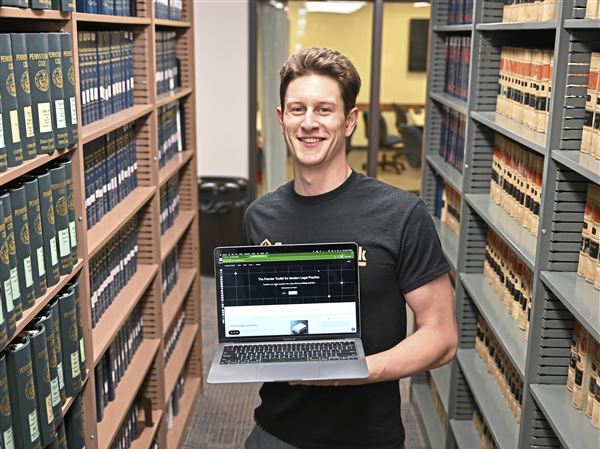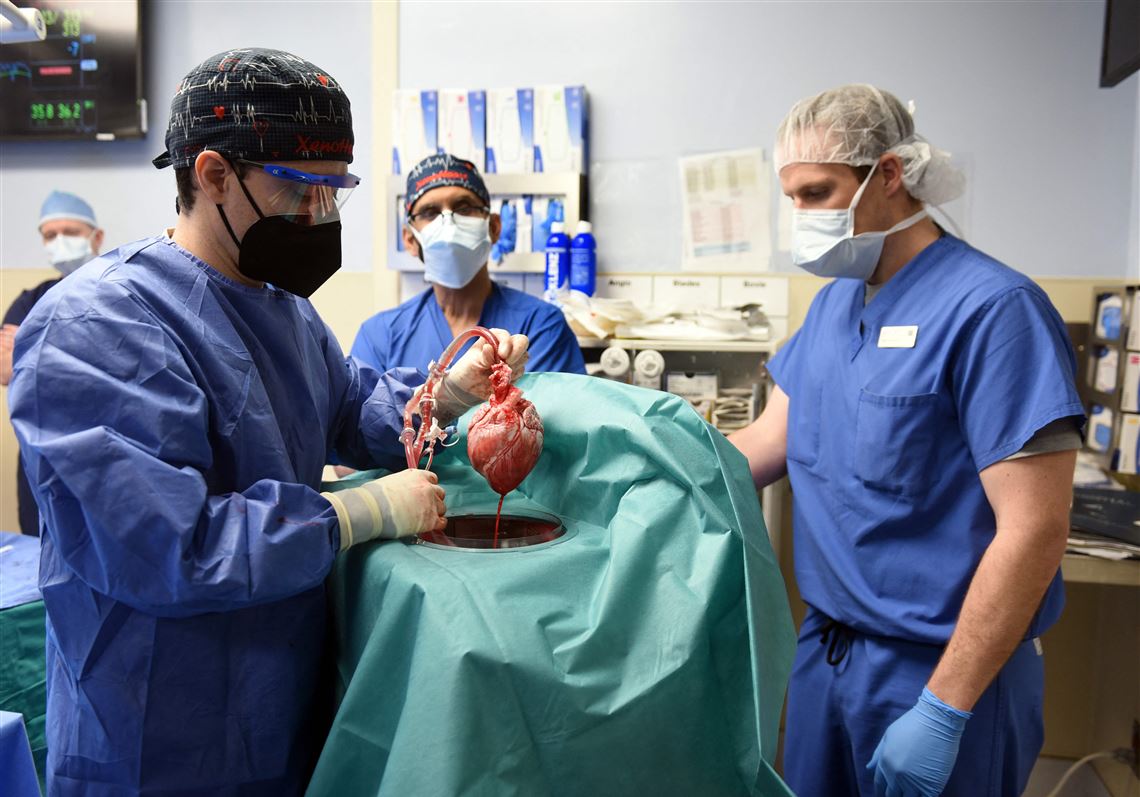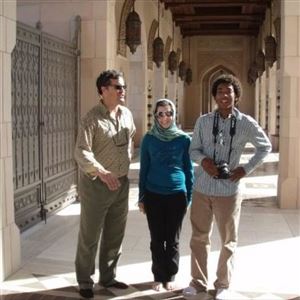BALTIMORE — A Maryland man is doing well after surgeons and clinicians from the University of Maryland School of Medicine and the University of Maryland Medical Center performed the first successful transplant of a genetically modified pig’s heart Friday to save his life, officials from the health system said Monday.
After being diagnosed with terminal heart disease, the patient, 57-year-old David Bennett, had been deemed ineligible for a conventional heart transplant at the University of Maryland Medical Center and other transplant centers around the country. Doctors will monitor him in the hospital over the next several weeks or months to ensure that his body doesn’t reject the new heart.
Porcine heart transplants aren’t approved by the U.S. Food and Drug Administration, but the federal agency authorized the surgery Dec. 31 under its “expanded access” provision. Sometimes called the “compassionate use” provision, it is used when other treatment or therapeutic options aren’t available.
Mr. Bennett, who had been bedridden for much of the past few months due to a series of other operations, said he accepted the risks that came along with the experimental surgery.
“It was either die or do this transplant. I want to live,” he said in a statement before the operation. “I know it’s a shot in the dark, but it’s my last choice.”
Mr. Bennett’s team of doctors said the medical breakthrough can help health care providers solve the organ shortage crisis that leaves thousands without life-saving treatment options each year.
“There are simply not enough donor human hearts available to meet the long list of potential recipients,” said Dr. Bartley P. Griffith, a distinguished professor at the medical school who performed the transplant, in a Monday statement. “We are proceeding cautiously, but we are also optimistic that this first-in-the-world surgery will provide an important new option for patients in the future.”
Animal organ transplants, known as xenotransplants, can pose considerable risks to patients and are not widely administered. In one particularly notable case, infant Stephanie Fae Beauclair, born with a significant heart defect, was given a baboon heart by doctors at a California hospital in 1984. Her case ended in tragedy 20 days later after her body rejected the new organ, leading to her death.
On Monday, Alka Chandna, vice president of laboratory investigations cases at the animal rights organization People for the Ethical Treatment of Animals, said such transplants are dangerous and a waste of resources that otherwise could be devoted to helping humans.
“The risk of transmitting unknown viruses along with the animal organ are real and, in the time of a pandemic, should be enough to end these studies forever,” Ms. Chandna said in a statement. “Animals aren’t toolsheds to be raided but complex, intelligent beings. It would be better for them and healthier for humans to leave them alone and seek cures using modern science.”
Pig hearts have been long been reviewed as potential swaps for the human heart given their similarities. Some people already have received heart valves from pigs as replacements.
University of Maryland Medical System officials, in Monday’s news release, said physicians were confident that the transplant could buy the patient more time.
Dr. Griffith teamed with Dr. Muhammad M. Mohuiddin, a professor at the medical school and creator of the Cardiac Xenotransplantation Program, in studying this technique for the past five years. They used the genetically modified heart plus a combination of drugs meant to prevent the immune system from rejecting the new organ.
“This is the culmination of years of highly complicated research to hone this technique in animals with survival times that have reached beyond nine months,” Dr. Mohuiddin said. “The successful procedure provided valuable information to help the medical community improve this potentially life-saving method in future patients.”
Dr. Mohuiddan is a career transplant researcher, according to the health system, and has demonstrated in peer-reviewed studies the viability of pig hearts in humans when genetically modified and combined with the right drugs.
Before agreeing to the experimental operation, Mr. Bennett had been admitted to the hospital for more than six weeks. He had been denied an artificial heart pump due to a life-threatening arrythmia, or an irregular heart beat. And he had been placed on an extracorporeal membrane oxygenation machine, a device that pumps blood out of the body to give the vital organs time to recuperate during intense bodily stress. It is considered a last-chance therapy.
The physicians and medical school were aided by Revivicor, a regenerative medicine company based in Blacksburg, Va., that provided the modified pig heart. The school of medicine also received a more than $15 million grant from Silver Spring-based Lung Biotechnology PBC to study the Revivicor organs in studies on baboons.
Top officials at the health care network thanked the patient for agreeing to be a part of history.
Dr. Mohan Suntha, president and CEO of the University of Maryland Medical System, said Mr. Bennett’s decision could save more lives in the future.
And Dr. Bert W. O’Malley, president and CEO of the Baltimore-based University of Maryland Medical Center, called the surgery a “historic, monumental step forward.”
“While we have long been at the forefront of research driving progress toward the promise of xenotransplantation as a viable solution to the organ crisis, many believed this breakthrough would be well into the future,” Dr. O’Malley said in a statement. “I couldn’t be more proud to say the future is now.”
Dr. O’Malley said the patient’s insurance covered his traditional hospital care, while the medical center and University of Maryland, Baltimore, contributed “collective funds,” which are reserved for uses such as unique patient care needs and innovation.
First Published: January 11, 2022, 1:22 a.m.
















